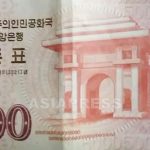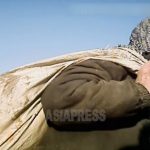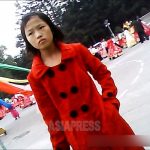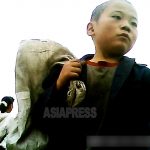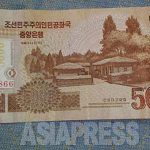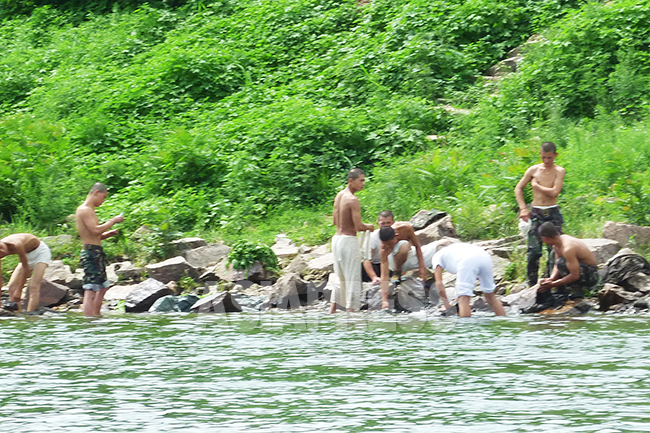
Late last month, the Kim Jong-un regime held a massive military parade, but food shortages at military bases in the country’s northern region have led to chronic malnutrition among ordinary soldiers. Several ASIAPRESS reporting partners met with soldiers to hear about their circumstances. (KANG Ji-won / ISHIMARU Jiro)
◆ “There’s no side dishes except for fermented soybean paste”
From late July to early August, ASIAPRESS reporting partners met and talked with soldiers in North Hamgyung and Yanggang provinces.
One soldier in his late 20s told one of the reporting partners that “There’s a dish they hand out that’s mixed with corn powder and Annam (medium grain) rice, but we get less than half a bowl. There’s no side dishes except for fermented soybean paste. Half of the soldiers at the base are weak (from malnutrition).”
A soldier stationed in an agricultural area and tasked with farming and farm security duties told another reporting partner that “they give us wheat and barley, but it’s far from enough. It’s better than being sent back to our home base, though.” He also said that hungry soldiers head to rivers to catch fish or pick mountain greens to survive, and that farmers share their side dishes with them.
◆ An increase in robberies as soldiers steal money and valuables
Military bases began facing food shortages from around April. That’s about the same time there was an increase in starvation deaths among North Korea’s vulnerable classes.
In July, North Korea loosened its quarantine measures aimed at preventing the spread of COVID-19. Up until then, soldiers were strictly restricted from making contact with ordinary people, but this restriction was eased. That sparked an increase in crime among soldiers, who had been under difficult circumstances during the pandemic.
In urban areas, soldiers frequently start fights with ordinary people to demand money or steal valuables. The authorities, concerned over worsening relations between the military and people, now implement various measures against soldiers such as evening curfews or handing down collective punishment, which involves punishing not just the soldier who committed a crime but also his fellow soldiers.
“In July, a soldier in Yanggang Province ate a chicken he had stolen, which led to a week’s probation for the company commander. Soldiers say that it’s become a common thing to say at the bases that ‘just make sure you’re not caught stealing.’”
The soldiers interviewed by ASIAPRESS reporting partners make up only a minority of soldiers in the North Korean military, and there may be differences in circumstances faced by soldiers depending on where they are stationed and which unit they are in.
※ ASIAPRESS communicates with its reporting partners through Chinese cell phones smuggled into North Korea.
- <Inside N. Korea>The authorities finally start cracking down on housing transactions, “Severely punish anti-socialist behavior”…Crackdown on 25-year-old “housing market” may cause chaos
- <Inside N. Korea>Even the police face temporary cut in rations due to financial troubles… “In May, they had no choice but to buy food on credit”
- <Inside N. Korea> Daycares and preschools stop providing meals due to financial troubles…Parents facing demands for rice and money protest by turning their backs on the schools, sending their kids to neighbors instead
- <Investigation>100 soldiers surround farming community of 500 farmer to prevent stealing of crops…Military-Farmer relations improved
- <Inside N.Korea> Spring wheat harvest is finished and delivered to the army・・・Farmers rebel without their share
